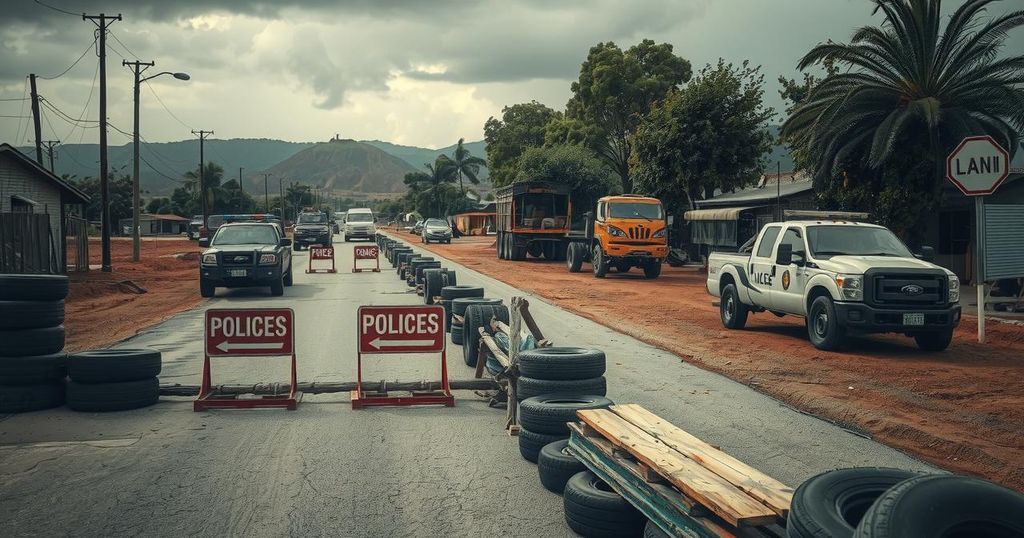Policeman Killed in Bolivia Amid Clashes with Morales Supporters
A police officer was killed in Bolivia during clashes with supporters of former President Evo Morales, who are protesting against the government’s refusal to allow him to run for re-election. The unrest reflects growing frustration over economic issues and has led to several injuries among both civilians and law enforcement. Morales, currently facing a terrorism investigation, has been barred from seeking another term after previously resigning amid controversy in 2019.
In Bolivia, a policeman was tragically killed in violent clashes on Wednesday as tensions escalated between law enforcement and supporters of former President Evo Morales. This incident occurred when police attempted to dismantle roadblocks that Morales’ followers had erected in response to the electoral authorities’ refusal to let him run again in the upcoming elections on August 17. The unrest has morphed into a broader crisis criticizing President Luis Arce’s management of the country’s dire economic situation, which includes severe shortages of essential resources like hard currency and fuel.
According to Deputy Interior Minister Jhonny Aguilera, “shots were fired, one (officer) lost their life and another is gravely injured,” in the southwestern town of Llallagua. Recent reports indicate that at least a total of 15 civilians and two police officers were hurt in a previous confrontation the day before, as tensions rose between Morales supporters blocking roads and residents attempting to push through. The national roads authority noted a decrease in roadblocks, reporting 21 across the nation on Wednesday, down from 29 the prior day.
Evo Morales, who served as president from 2006 until his resignation in 2019, has faced legal hurdles in attempting to return to power. The Constitutional Court has barred him from seeking re-election, although he tried to register as a candidate last month. The current government has accused Morales of attempting to disrupt the electoral process by inciting protests and blockades. President Arce stated that the protesters are aiming “to encircle La Paz to force it into submission through hunger,” prompting a coordinated police and military operation to remove blockades from key highways.
On a legal front, Morales is now under investigation for “terrorism” due to allegations of inciting unrest among his supporters. He has remained in hiding within his political stronghold of Chapare since October, avoiding arrest over accusations related to a sexual relationship with a minor. Morales has adamantly denied these allegations.
Further complicating the situation, clashes were also reported on Wednesday between police and Morales’ supporters in Parotani, a town situated north of Llallagua. Morales, noted for being Bolivia’s first Indigenous president and one of the longest-serving leaders in Latin America, resigned amidst controversy in 2019 after his efforts to extend his presidency. Since his departure, the Constitutional Court has reinforced Bolivia’s two-term limit, which Morales had previously circumvented. Regardless of legal setbacks, he still maintains a loyal base, particularly among Indigenous populations in the region.
The recent clashes in Bolivia highlight the ongoing tensions between the government and supporters of former President Evo Morales, fueled by economic discontent and political unrest. The conflicts have led to tragic consequences, including the death of a police officer, while Morales remains a controversial figure despite the legal obstacles against him. This situation underscores the volatile landscape in Bolivian politics as the country approaches crucial elections.
Original Source: www.yahoo.com




Post Comment